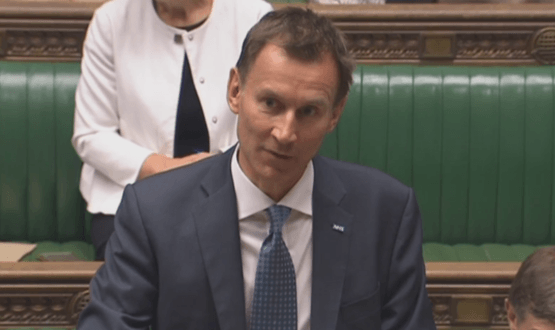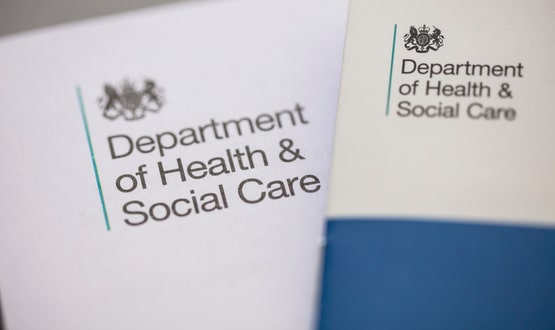Hunt: IT error ‘could have cut short the lives of up to 270 women’
- 2 May 2018

An IT error may have been the reason why the lives of up to 270 women in England were shortened after they failed to receive their final routine breast cancer screening invitation, Jeremy Hunt has told MPs.
Speaking in the House of Commons on Wednesday, the Health and Social Care Secretary said the affected group of women were not sent invitations before their 71st birthday because “there was a computer algorithm failure”, which dated back to 2009.
He added: “Latest estimates I have received from Public Health England (PHE) is that as a result of this, between 2009 and the start of 2018, an estimated 450,000 women aged between 68 and 71 were not invited to their final breast screening.
“At this stage it is unclear whether any delay in diagnosis would have resulted in any avoidable harm or death and that is one of the reasons why I am ordering an independent review to establish this clinical impact.”
Hunt went on to say that initial estimates, which are based on “clinical modelling rather than patient reviews”, have suggested that between 135 and 270 women may have “had their lives shortened as a result”.
He added: “It is unlikely to be more than this range and may be considerably less, however tragically there are likely to be some people in this group who would have been alive today if the failure had not happened.”
All women aged 50 to 70 who are registered with a GP are automatically invited for breast cancer screening every three years as part of the programme, which is run by PHE.
Hunt said the IT error was discovered because of an upgrade to the breast screening invitation IT system and said his department was first alerted by PHE to the problem in January.
He also said that the error has since been fixed and promised that the 309,000 women who were confirmed to still be alive would be contacted by the end of May 2018 with the first 65,000 letters sent out this week.
All those under 75 will be offered a catch-up screening and women who wish to be screened will be invited in the next six months, but this is likely to be sooner, Hunt confirmed.
He added that his department would contact the families of women who had died of breast cancer whom they believed missed a screening, apologising and offering a process to establish whether the missed scan was a likely cause of death, which could lead to compensation.
The inquiry, which Hunt said will be expected in six months time, will be chaired by the Macmillan Cancer Support chief executive, Lynda Thomas, and Professor Martin Gore, consultant medical oncologist at the Royal Marsden, who will oversee the entire breast screening programme.
Dr Jenny Harries, PHE deputy medical director apologised for error which she said was a “complex IT problem”.
She added: “Additional failsafe systems have been introduced to ensure the problem does not reoccur.”
Baroness Delyth Morgan, chief executive at Breast Cancer Now, welcomed the independent inquiry.
She said: “We are deeply saddened and extremely concerned to hear that so many women have been let down by such a colossal systematic failure. That hundreds of thousands of women have not received the screening invitations they’ve been relying upon, at a time when they may be most at risk of breast cancer, is totally unacceptable.”
Women who are concerned about whether they had missed a screening can call 0800 169 2692.





1 Comments
Letter from someone who’s got medical qualifications in the paper suggests there are upsides, too. Breast cancer screening of this age grooup is poorly evidenced!
https://www.telegraph.co.uk/opinion/2018/05/03/letters-eu-customs-union-protection-against-american-bullying/ [scroll down].
SIR – It is tragic if 270 women died prematurely because they were not called for screening but, according to NHS breast cancer screening statistics, 810 women have been spared unnecessary treatment with surgery, radiation and chemotherapy.
Dr Dora Henry
Stratford-upon-Avon, Warwickshire
Comments are closed.